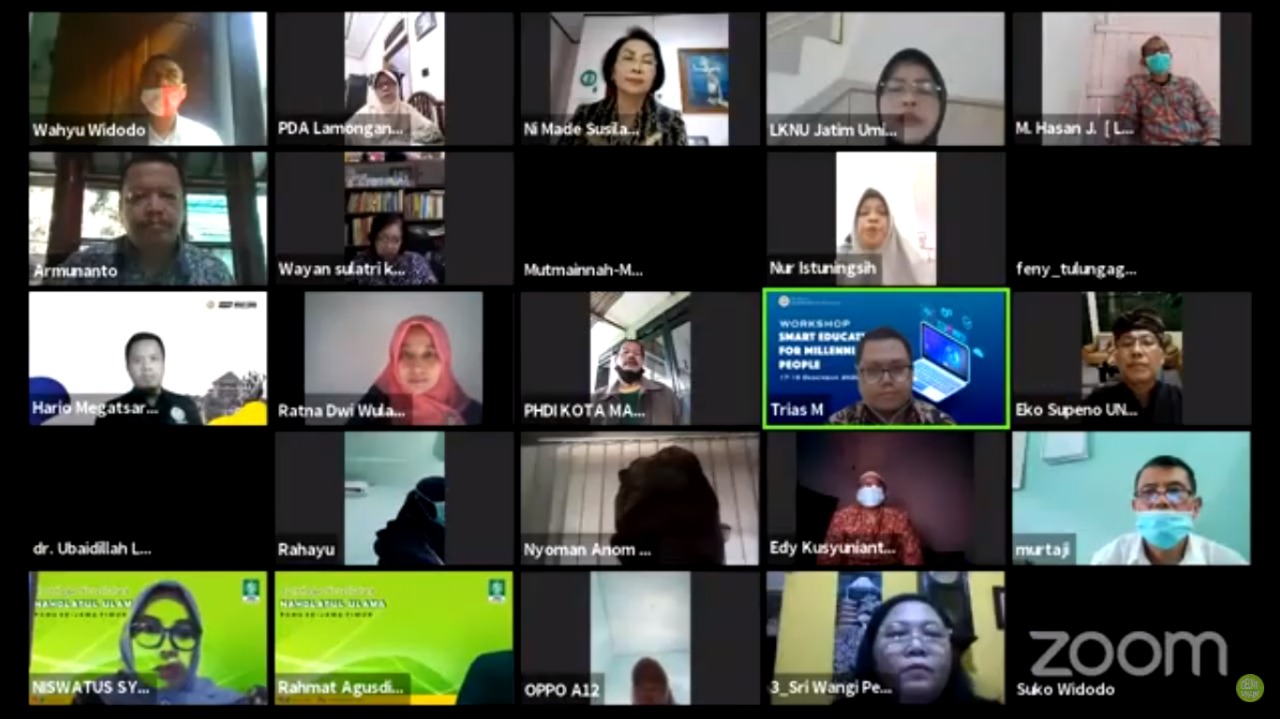UNAIR NEWS – Universitas Airlangga’s Healthy Mother and Child Movement ( GELIAT ) in collaboration with UNICEF and Faculty of Public Health held the 16th webinar on Tuesday, December 22, 2020. The webinar invited a health promotion team from Health & Hospital Office, community leaders, a team from Non-Governmental Organizations in the field of Health, a team from the Communication and Information Office, and journalists to join in.
Just like the previous webinars, this seminar was also held through Zoom platform and the live streaming YouTube channel of Geliat Airlangga, in order to prevent the spread of Covid-19 during the process.
The increasing Covid-19 cases, which was caused by a decrease in public compliance to health protocols, has become an alarm regarding the importance of appropriate communication and risk management strategies as the response to the Covid-19 disaster. In this regard, on this occasion, Geliat Airlangga carried the theme “Communication as a Tool to Prevent the Spread of Covid-19”.
Ratna Dwi Wulandari, the person in charge of the event, expressed her hope that this webinar could help communicate important matters related to Covid-19 to target groups more quickly and better. So, together, the community can fight the pandemic.
Meanwhile, Dr. Suko Widodo, Drs., M.Si., Head of Center for Media Development and Public Relations UNAIR said that communication must contain messages that are both inspiring and constructive. “The effectiveness of communication is not only about exchanging information, but also about emotions and good intentions. So, we also need to listen, “he added.
Nursila Dewi, a risk communication practitioner, said that the core definition of risk communication is to explain the possibilities and consequences related to an emergency or health crisis in order to reduce the possible events / consequences.
“In disseminating information to build trust and cooperation, first identify the reaction to the emergency. The second is to develop a risk communication strategy, ” she said.
Dr. Hendro Wardhono, Drs., M.Si., Fourth Deputy of Indonesian Disaster Expert Association of East Java, explained that disaster risk reduction implemented in Indonesia uses four frameworks.
“In the context of reducing disaster risk, we should understand disaster risk. The second is to strengthen disaster risk governance and disaster risk management, both in government and non-government aspects. Third, investing in disaster risk reduction for resilience. And, the fourth is to improve preparedness, “he explained. (*)
Author: Aisyah Tsabita Zaki Ihsani
Editor: Binti Q. Masruroh





